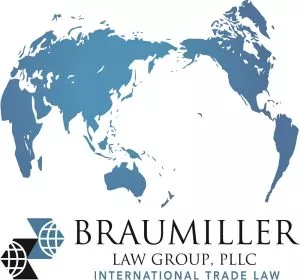Most companies that employ non-U.S. persons in the United States are familiar with visa requirements, including completing U.S. Citizenship and Immigration Services Form I-129 – Petition for a Nonimmigrant Worker. However, many are less familiar with the affirmative due diligence and certification requirements contained in Part 6 of the I-129.
Since 2011, U.S. Customs and Immigration Services has required that all Form I-129s for non-immigrant visa applications submitted to the U.S. government in connection with H-1, L-1 or O-1 petitions must include an export control compliance attestation. Essentially, all company sponsors of foreign national employees must certify compliance with U.S. export control regulations, including the Export Administration Regulations (EAR) and the International Traffic in Arms Regulations (ITAR).
The Form I-129 provides:
Part 6: Certification Regarding the Release of Controlled Technology or Technical data to Foreign Persons in the Unites States.
With respect to the technology or technical data the petitioner will release or otherwise provide access to the beneficiary, the petitioner certifies that it has reviewed the Export Administration Regulations (EAR) and the International Traffic in Arms Regulations (ITAR) and has determined that:
- A license is not required from either the U.S. Department of Commerce or the U.S. Department of State to release such technology or technical data to the foreign person;
Or
- A license is required from the U.S. Department of Commerce and/or the U.S. Department of State to release such technology or technical data to the beneficiary and the petitioner will prevent access to the controlled technology or technical data to the beneficiary until and unless the petitioner has received the required license or other authorization to release it to the beneficiary.
The above requirements relate to the possible disclosure of restricted technology and technical data to foreign persons located in the U.S., also referred to as a "deemed export". The Export Administration Regulations (EAR) (15 CFR Parts 770-774) and the International Traffic in Arms Regulations (ITAR) (22 CFR Parts 120-130) require U.S. persons to seek and receive authorization from the U.S. Government before releasing to foreign persons in the United States controlled technology or technical data.
I-129 general filing instructions provide that the EAR / ITAR certification requirements overall will affect only a small percentage of petitioners, however companies that deal in restricted / controlled technology or technical data and sponsor non-immigrant visa applications must not only be familiar with deemed export and licensing requirements but must also comply with the I-129 requirements set forth above.
As the I-129 Part 6 certification requirements require an affirmative attestation that "it has reviewed the Export Administration Regulations (EAR) and the International Traffic in Arms Regulations (ITAR)" and has determined that a license either is, or is not required based on the prospective individual employee's circumstances, this places an affirmative responsibility on the company to perform adequate due diligence regarding the prospective employee's access to controlled technology or technical data in order to comply with the certification requirements.
Carrying out this due diligence does not necessarily have to be burdensome, however does require incorporating specific EAR / ITAR access review compliance processes and procedures into the company's immigration application and compliance procedures. This can be accomplished using a well-prepared EAR / ITAR Access questionnaire to be completed by the non-immigrant employee's manager or the company's HR representative familiar with the prospective employee's job responsibilities. Any affirmative responses indicating possible access to restricted technology or technical data can then be further explored in a supplemental review process.
Further, Braumiller Law Group recommends that denied party screening also be performed for each non-immigrant employee as part of the due diligence review to assure there are no conflicts with any denied persons listings.
Lastly, after carrying out the due diligence review and providing the required I-129 attestation, the company should keep a detailed record of the EAR / ITAR due diligence review in the employee's immigration / employment file.
Braumiller Law Group assists companies with compliance with I-129 EAR / ITAR due diligence requirements and employee screening and has developed a proprietary questionnaire designed to identify potential EAR / ITAR access, to be used in conjunction with consultation with our experts who can assist in determining necessary next steps if potential EAR / ITAR access issues are identified.
Check out our new Digital Magazine Get the inside scoop on the Braumiller Law Group & Braumiller Consulting Group "peeps." Expertise in International Trade Compliance.
The content of this article is intended to provide a general guide to the subject matter. Specialist advice should be sought about your specific circumstances.

